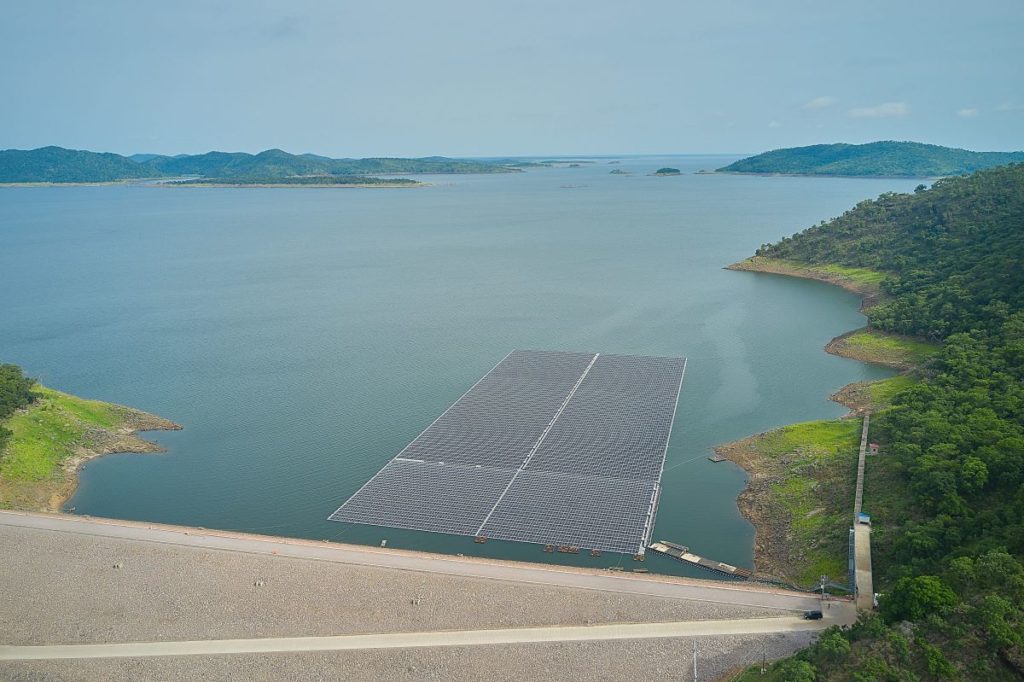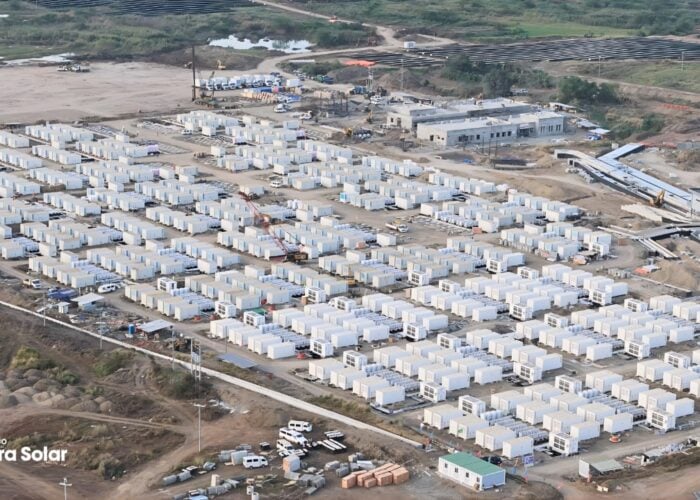
Ghana will look to deploy around 150GW of solar PV capacity to achieve its net zero emissions target by 2060, a plan that represents US$550 billion in investment opportunities for companies and other nations.
Unveiled at the UN General Assembly last week (21st September), Ghana’s updated Energy Transition and Investment Plan (ETIA) was developed with Sustainable Energy For All (SEforALL), the UN-partnered energy transition firm.
Try Premium for just $1
- Full premium access for the first month at only $1
- Converts to an annual rate after 30 days unless cancelled
- Cancel anytime during the trial period
Premium Benefits
- Expert industry analysis and interviews
- Digital access to PV Tech Power journal
- Exclusive event discounts
Or get the full Premium subscription right away
Or continue reading this article for free
The plan brings forward Ghana’s net zero target by a decade, from 2070 to 2060, and charts a pathway over the next four decades to phase out carbon emissions in tandem with significant economic growth for the country.
If Ghana’s current energy mix continued unchanged, the forthcoming economic and population growth that the country expects would see emissions grow 5X through to 2060. The new plan relies on a 100% shift to low-carbon technologies by 2060, with net emissions set to peak in the mid-2030s before a rapid decline to net zero.
In terms of solar PV, the plan is targeting 26GW worth of deployed capacity by 2040, after which point it plans to ramp up deployments to a 5GW/year average, reaching 146GW of solar PV on the ground by 2060.
According to market research company Mordor Intelligence, as of 2021 Ghana’s installed solar PV capacity was 108MW.
By 2060 solar would account for 83% of Ghana’s generation capacity under the new plan, with small contributions from other technologies like nuclear, hydro-power and hydrogen. Gas capacity would also increase to around 25GW but would be reserved for security of supply.
This PV rollout would be aided by the opportunities that will arise for a domestic PV industry which the plan intends to establish. In January, Ghana was one of ten African countries identified to have “medium or high feasibility” for developing local PV or battery storage manufacturing by the newly-established Africa Renewable Energy Manufacturing Initiative (AREMI). AREMI was established with support from SEforALL.
Earlier this year the Nigerian government through its National Agency for Science and Engineering Infrastructure began construction on a vertically integrated solar cell production facility representing US$171 million investment.
International investment into Ghana’s solar sector already exists with projects like Singapore-based developer G8’s 65MW floating solar project at the Bui Generating Station hydroelectric plan, and oil major Shell acquired West African corporate and industrial (C&I) solar provider Daystar Power in July 2022 with a view to expanding operations in Ghana and other West African countries.
Outside of Ghana, much of the investment into renewables generation capacity in Africa- outside of the more developed north and south of the continent – has been Middle Eastern investment. Saudi state-owned energy company Masdar has announced a number of plans across the continent, notably plans for 3GW of renewables in Angola and Uganda and a 500MW capacity project in Ethiopia.






